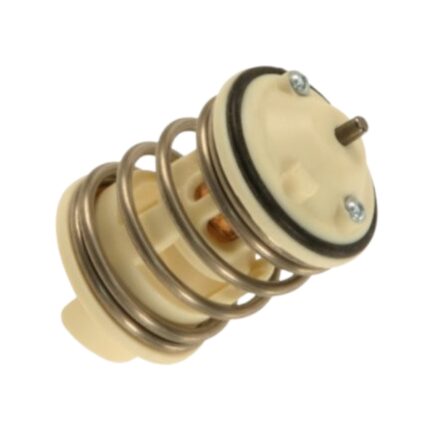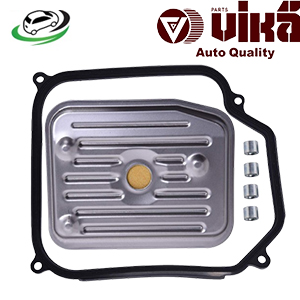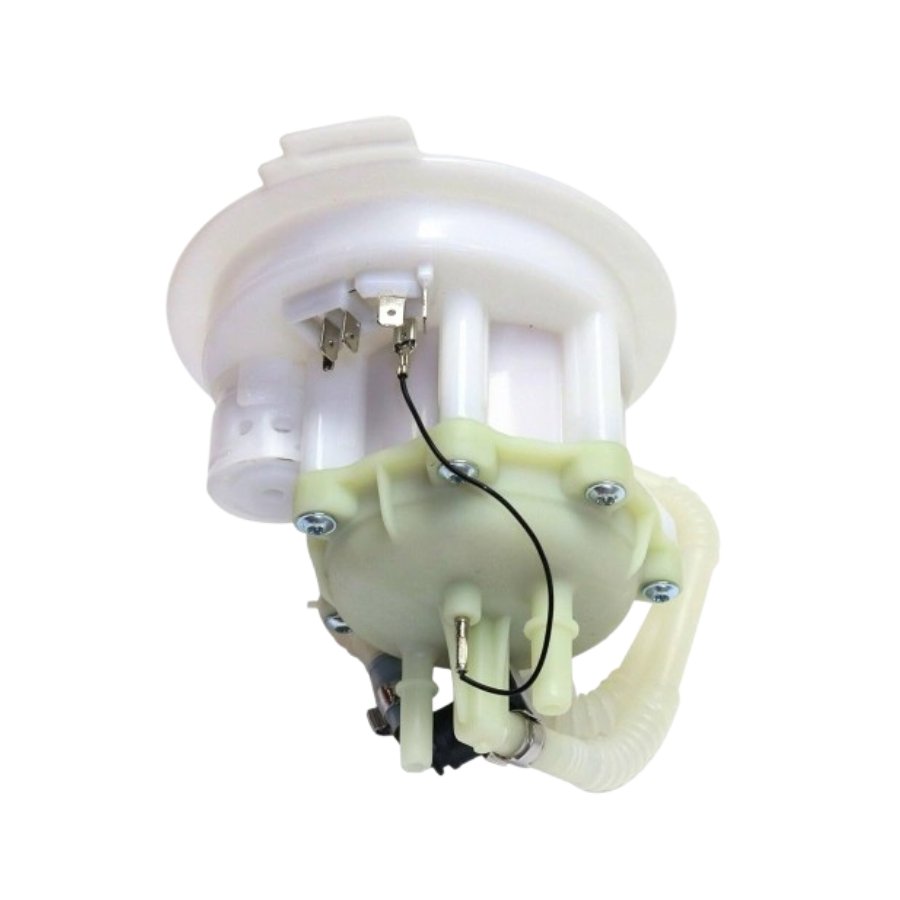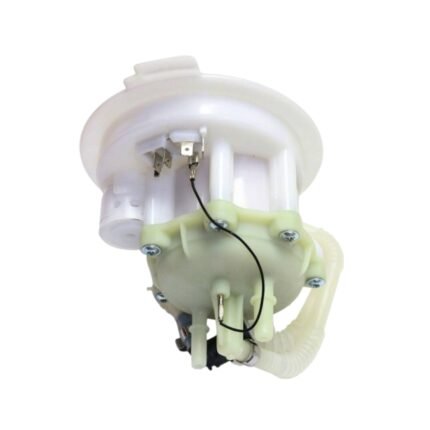Get Volkswagen Touareg V6/V8/Base Sport Fuel Filter 7L0919679 in Kenya
The fuel filter is an essential component in a vehicle’s fuel system, playing a crucial role in ensuring that the engine receives clean and contaminant-free fuel. As fuel travels from the tank to the engine, it can pick up dirt, debris, and other impurities that can negatively affect performance. The fuel filter serves to remove these contaminants, allowing for optimal engine operation. Understanding the functions, importance, maintenance practices, and common issues associated with fuel filters is essential for vehicle owners and automotive professionals alike.
Functions of the Fuel Filter
- Contaminant Removal: The primary function of the fuel filter is to trap dirt, rust, sediment, and other impurities that may be present in the fuel. By removing these contaminants, the filter helps prevent damage to the engine and fuel injectors.
- Protecting Fuel Injectors: Fuel injectors are precision components that require clean fuel for optimal performance. A clogged or dirty fuel filter can lead to poor fuel atomization, causing misfires and reduced engine efficiency. The fuel filter protects the injectors from damage caused by contaminants.
- Ensuring Fuel Flow: The fuel filter allows for a smooth and consistent flow of fuel to the engine. If the filter becomes clogged, it can restrict fuel flow, leading to engine performance issues such as stalling, hesitation, or difficulty starting.
- Maintaining Fuel Quality: By filtering out impurities, the fuel filter helps maintain the quality of the fuel entering the engine. Clean fuel is essential for efficient combustion, maximizing power output, and reducing emissions.
- Extending Engine Life: By preventing contaminants from reaching the engine and fuel system components, the fuel filter helps extend the overall life of the engine. Regular replacement of the fuel filter is crucial for maintaining the health of the fuel system and engine.
Importance of the Fuel Filter
- Engine Performance: A properly functioning fuel filter is vital for optimal engine performance. A clogged or damaged filter can lead to poor acceleration, decreased power, and overall reduced efficiency.
- Preventing Engine Damage: Contaminants in the fuel can cause significant damage to engine components, including fuel injectors, fuel pumps, and combustion chambers. The fuel filter serves as a protective barrier, preventing these contaminants from causing harm.
- Improving Fuel Efficiency: A clean fuel filter promotes better fuel atomization, allowing for more efficient combustion. This efficiency translates to improved fuel economy, saving vehicle owners money on fuel costs.
- Emissions Control: Clean fuel is essential for minimizing harmful emissions. A malfunctioning fuel filter can lead to incomplete combustion, resulting in increased emissions and potential failure to meet environmental regulations.
- Cost-Effectiveness: Regularly replacing the fuel filter can prevent more significant issues down the line, such as fuel system damage or engine failure. This proactive maintenance is cost-effective and can save vehicle owners from expensive repairs.
Types of Fuel Filters
- In-Line Fuel Filters: These filters are typically located along the fuel line, between the fuel tank and the engine. In-line filters are commonly used in many modern vehicles and can be easily replaced during routine maintenance.
- Cartridge Fuel Filters: Cartridge filters are a type of replaceable fuel filter housed in a canister. They are often found in diesel engines and can filter a larger volume of fuel.
- Fuel Filter/Water Separator: Often used in diesel engines, this type of filter removes both fuel contaminants and water. Water in diesel fuel can cause serious damage, making this filter particularly important for diesel applications.
- Integrated Fuel Filters: Some fuel pumps come with built-in fuel filters. These filters are typically designed to last the life of the pump, but may need replacement if the pump is serviced or replaced.
Maintenance of the Fuel Filter
- Regular Inspection: Routine inspections of the fuel filter should be part of regular vehicle maintenance. Look for signs of leaks, corrosion, or damage that may indicate a need for replacement.
- Replace as Recommended: Follow the manufacturer’s recommendations for fuel filter replacement intervals. Typically, fuel filters should be replaced every 15,000 to 30,000 miles, but this can vary depending on the vehicle and driving conditions.
- Monitor Engine Performance: Pay attention to any changes in engine performance, such as stalling, hesitation, or difficulty starting. These symptoms may indicate a clogged or failing fuel filter.
- Use Quality Fuel: Using high-quality fuel from reputable sources can help reduce the amount of contaminants that enter the fuel system. Avoid filling up at stations that frequently run low on fuel, as this can disturb sediment in the tank.
- Check Fuel Lines: Regularly inspect fuel lines for cracks, leaks, or corrosion. Damaged fuel lines can introduce contaminants into the fuel system, making the fuel filter work harder and potentially leading to failure.
- Service Fuel System: Consider having the fuel system serviced periodically to clean injectors and remove deposits. This service can help maintain the efficiency of the fuel filter and overall fuel system.
Common Issues Associated with Fuel Filters
- Clogged Fuel Filter: One of the most common issues is a clogged fuel filter, which can restrict fuel flow to the engine. Symptoms of a clogged filter include poor acceleration, stalling, and difficulty starting.
- Fuel Contamination: If the fuel filter becomes saturated with contaminants, it can no longer effectively filter the fuel. Contaminated fuel can lead to injector damage, poor combustion, and decreased engine performance.
- Leaking Filter: A damaged or improperly installed fuel filter can result in fuel leaks. Leaking fuel poses a fire hazard and should be addressed immediately.
- Incorrect Installation: If a fuel filter is not installed correctly, it can lead to improper fuel flow and performance issues. It’s important to follow manufacturer guidelines when replacing the filter.
- Filter Material Degradation: Over time, the filter material may degrade due to exposure to fuel and heat. A deteriorating filter can lead to fuel contamination and reduced efficiency.
- Water in the Fuel: For vehicles with a fuel filter/water separator, the presence of water can lead to serious issues. Water can cause fuel system corrosion and engine damage, making it essential to regularly check and drain this filter type.
Conclusion
The fuel filter is a vital component of a vehicle’s fuel system, responsible for removing contaminants and ensuring that the engine receives clean fuel. Its functions include contaminant removal, protecting fuel injectors, maintaining fuel quality, and extending engine life.
Regular maintenance and timely replacement of a worn or damaged fuel filter are crucial for preventing common issues such as clogged filters, fuel contamination, and engine performance problems. Understanding the importance of the fuel filter and monitoring its condition can save vehicle owners from costly repairs and enhance the longevity of the engine.
Investing time in the maintenance of the fuel filter is essential for achieving reliable engine performance and preventing severe engine damage. A properly functioning fuel filter not only contributes to efficient engine operation but also plays a significant role in ensuring the vehicle’s overall safety and reliability. By understanding how the fuel filter works and its importance in the fuel system, vehicle owners can take proactive measures to maintain their vehicles and enjoy optimal performance for years to come.
Follow us on Facebook for more parts.





Reviews
Clear filtersThere are no reviews yet.